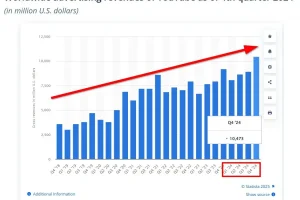Inflation causes prices to increase and can eat away at your purchasing power if income doesn’t rise accordingly. By investing judiciously, diversifying your portfolio, and budgeting efficiently, you can protect your finances against inflation’s damaging effects.
Inflation can erode investment returns, particularly fixed-return investments such as certificates of deposit and bonds. But there are strategies available to investors such as TIPS bonds or real assets like commodities and precious metals which may help counter this effect.
Purchasing Power
Inflation increases prices and can diminish the purchasing power of savings and investments. When inflation exceeds your bank account’s interest rate, for instance, then your money is losing value over time.
Investments that pay a fixed annual return, such as bonds or certificates of deposit, may not keep pace with inflation when their returns don’t keep pace. When inflation exceeds interest rates, these assets may not grow fast enough to keep pace with it.
Individuals saving for retirement or other long-term goals may find inflation to be particularly challenging, requiring them to spend more than originally intended in order to maintain their current standard of living.
Savings
Inflation can eat away at your savings over time. Rising prices eat away at its value and make you seem like you’re earning less with each dollar saved and invested. Yet inflation can affect people differently depending on the goods and services they use – such as someone who spends much of their income on gasoline as opposed to an electric car or public transportation might experience higher inflation rates than someone who relies more heavily on public transit services for transportation needs.
Once inflation rates rise, there are steps you can take to safeguard your financial future. These include diversifying across asset classes, avoiding concentration in any one sector and looking around for competitive prices on goods and services. Also consider investing in inflation-hedged securities such as TIPS bonds that adjust with changes in inflation rates to provide some protection from steep cost of living increases.
Investments
While inflation can help stimulate the economy, persistently high inflation can erode investments and savings over time. Individuals can mitigate its negative effects by keeping informed on government policies and investing judiciously in financial vehicles that offer higher returns than inflation rates.
Money saved in a bank savings account may gradually lose purchasing power as prices increase; even high yield savings accounts rarely provide enough interest to offset inflation. Conversely, stocks and income-producing real estate tend to outshone bank savings accounts as investments that grow during inflation.
Inflation can wreak havoc on bond prices, eroding their value over time and diminishing long-term bonds and bond mutual funds. But investors can protect themselves from inflation with fixed-income investments designed to keep pace with price movements by earning more when prices increase and less when prices decrease – helping investors preserve purchasing power and reach their investment goals simultaneously.
Debt
High inflation can be detrimental to investments with fixed annual returns such as bonds or bank certificates of deposit, since purchasing power decreases with inflation; for instance, $100 of annual interest paid each year could become worth significantly less over time. Conversely, inflation tends to benefit real assets such as real estate and commodities which appreciate in value when prices increase.
Moderate inflation can be beneficial to people in debt by diminishing the purchasing power of loans or mortgages, freeing up cash for spending or investing. On the other hand, rising inflation can be challenging for businesses that must cover fixed costs or are dependent on labor-intensive services as it could cause cost-push inflation where demand outstrips supply of goods and services; inflation volatility also poses challenges that threaten profit margins and earnings; however understanding how inflation will move can assist with creating debt management plans that protect savings and purchasing power.








